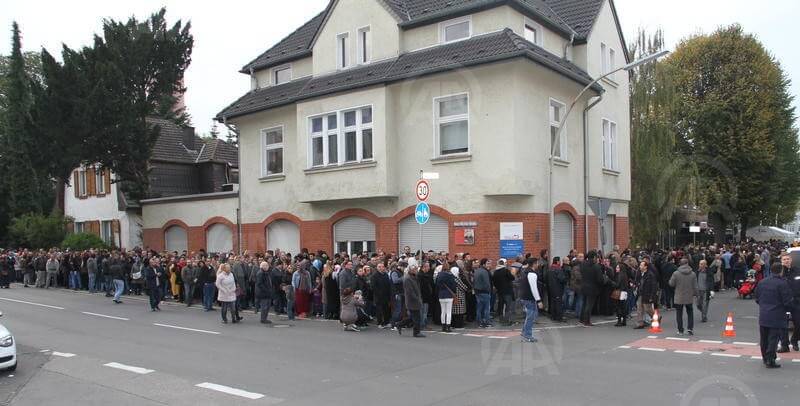A remarkable increase in the number of Turks going to the polls has been observed during voting conducted overseas for the May 14 elections in Turkey, with over a million people casting their votes at polling stations abroad and at customs checkpoints since out-of-the-country voting started for Turkish citizens last week, according to figures from the country’s election authority.
According to the figures released by Turkey’s Supreme Board of Elections (YSK), a total of 1,138,743 of over 3 million Turkish citizens living abroad had cast their votes as of 1 p.m. Thursday.
More than 800,000 of them voted in the first six days, starting on April 27. During the 2018 elections, the number of people who cast their votes during the same period was fewer than half this turnout, according to local media.
Turkish media reports said voters hired buses to travel to polling stations in large groups and waited in lines for hours to cast their votes in some countries.
A total of 26 polling stations reportedly opened across Germany for the roughly 1.5 million registered Turkish voters living there, the largest diaspora participating in Turkey’s most pivotal election in decades.
The voting is expected to continue until May 9 at Turkish diplomatic missions overseas and until 5 p.m. on May 14 at customs checkpoints.
Meanwhile, some restrictions have come into effect with only 10 days left until the elections. Accordingly, the results of any written, oral or visual press and media content, including public opinion surveys, that may influence citizens’ votes cannot be published, and lawmakers and ministers cannot engage in election campaigns using official vehicles.
Opinion polls conducted prior to the parliamentary and presidential elections scheduled for May 14 indicate that President Recep Tayyip Erdoğan is in a tight race, either running head-to-head or trailing opposition leader Kemal Kılıçdaroğlu.
Erdoğan, 69, is currently facing public resentment due to a severe economic crisis and his Justice and Development Party (AKP) government’s slow response to February earthquakes, resulting in the loss of more than 50,000 lives.
Inflation is still elevated at 50.5 percent, according to the latest official figures, and the currency is losing value, leading to a high cost of living for most Turkish citizens.
